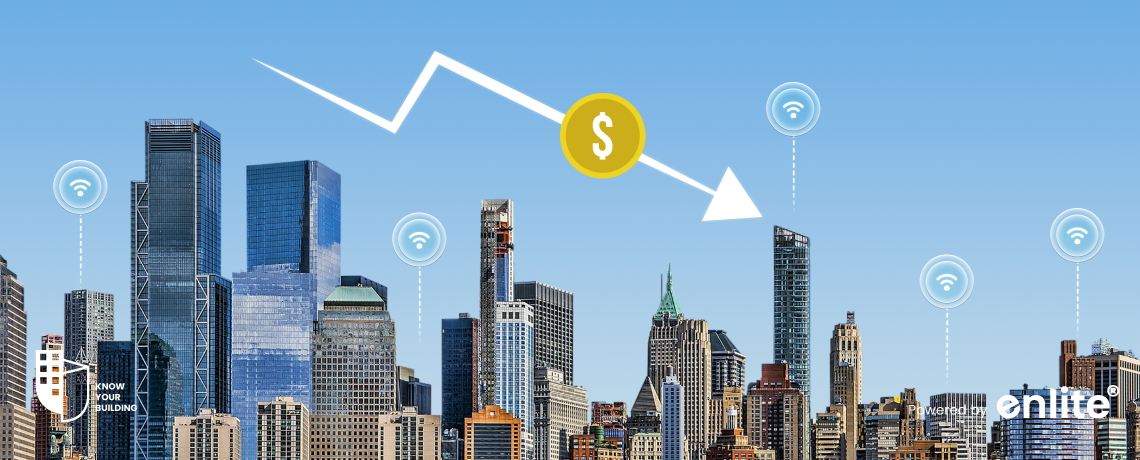Data Insights:
- Buildings account for 40% of global energy consumption, making them a significant target for efficiency improvements.
- According to the International Energy Agency (IEA), smart building technologies can reduce energy use by up to 30% in existing buildings.
- 70% of building operators report that integrating advanced building management systems (BMS) can significantly improve operational efficiency and reduce energy costs.
Introduction: The Need for Building Efficiency
As the world becomes more focused on sustainability, the pressure is mounting on commercial and residential buildings to improve their operational efficiency. This includes reducing energy consumption, lowering operational costs, and enhancing occupant comfort, all while maintaining high safety standards. Buildings, particularly in commercial sectors, are increasingly adopting smart technologies to meet these demands. Know Your Building (KYB) offers a comprehensive, cutting-edge solution to transform building efficiency through its innovative cloud-native wireless BMS.
How Know Your Building (KYB) Can Improve Building Efficiency:
- Real-Time Energy Monitoring:
- KYB continuously tracks and monitors energy consumption across various building systems.
- Detailed energy analytics help facility managers identify areas where energy use can be reduced without compromising occupant comfort.
- Automated Energy Optimization:
- By integrating with HVAC, lighting, and other building systems, KYB can automatically adjust settings for optimal energy use.
- Intelligent algorithms ensure that energy is used efficiently, cutting down waste and lowering utility bills.
- Preventive Maintenance for Equipment:
- KYB’s predictive maintenance features alert facility managers about potential issues before they lead to system failures.
- Regular maintenance ensures that building systems operate at peak efficiency, reducing costly breakdowns and downtime.
- HVAC Optimization:
- KYB monitors and adjusts HVAC systems for optimal performance, balancing temperature and air quality while minimizing energy consumption.
- Demand-based ventilation helps regulate airflow in real-time, ensuring energy isn’t wasted on underutilized spaces.
- Lighting Control and Optimization:
- Smart lighting controls automatically adjust based on occupancy, natural light availability, and time of day.
- LED integration and motion sensors ensure that lighting is only on when necessary, contributing to energy savings.
- Water Conservation:
- KYB tracks water usage across the building and implements measures to detect leaks and inefficiencies.
- Automated water flow regulation and real-time alerts help reduce water waste and ensure efficient consumption.
- Integration of Renewable Energy:
- KYB allows for the integration of solar panels and other renewable energy sources.
- By optimizing energy consumption based on availability, buildings can minimize reliance on grid power and reduce overall energy costs.
- Sustainability Reporting and Analytics:
- KYB offers detailed reports on the building’s energy performance, carbon footprint, and resource utilization.
- Building managers can use these insights to track sustainability goals, report to stakeholders, and make data-driven decisions for future improvements.
- Smart Occupant Comfort and Engagement:
- By analyzing occupant behavior and environmental conditions, KYB optimizes space utilization, improving both comfort and energy efficiency.
- Occupants can interact with the system to adjust temperature or lighting for a personalized experience while keeping overall energy use in check.
- Scalable and Future-Proof Technology:
- As a cloud-native wireless solution, KYB offers the scalability to adapt to the changing needs of a building.
- The wireless nature ensures easy integration with new technologies and systems, making the building future-ready.
Key Benefits of KYB for Building Efficiency:
- Significant Cost Savings: Through energy optimization, predictive maintenance, and waste reduction, KYB helps buildings save on operational costs.
- Enhanced Sustainability: KYB’s ability to integrate renewable energy sources and optimize resource usage supports sustainability goals.
- Improved Occupant Comfort: With personalized settings and optimized building conditions, occupants experience better comfort, leading to higher satisfaction and productivity.
- Data-Driven Decisions: Access to real-time data and detailed analytics empowers building managers to make informed decisions for long-term efficiency improvements.
- Compliance with Green Certifications: KYB helps buildings meet the requirements of green building certifications like LEED and BREEAM by reducing energy consumption and improving overall performance.
The Future of Building Efficiency with KYB
As the demand for sustainable and efficient buildings continues to rise, adopting smart technologies like Know Your Building is no longer a luxury—it’s a necessity. With its ability to optimize energy use, reduce waste, and enhance occupant comfort, KYB is paving the way for a more efficient, cost-effective, and sustainable future for buildings worldwide.
By harnessing the power of cloud-native wireless BMS, facility managers can take control of building operations, ensuring efficiency, compliance, and long-term savings. Know Your Building is not just a tool—it’s a complete solution that empowers buildings to be smarter, greener, and more efficient, leading to a better environment and improved bottom lines for building owners and managers alike.
Get started with Know Your Building and unlock the full potential of building efficiency today!














